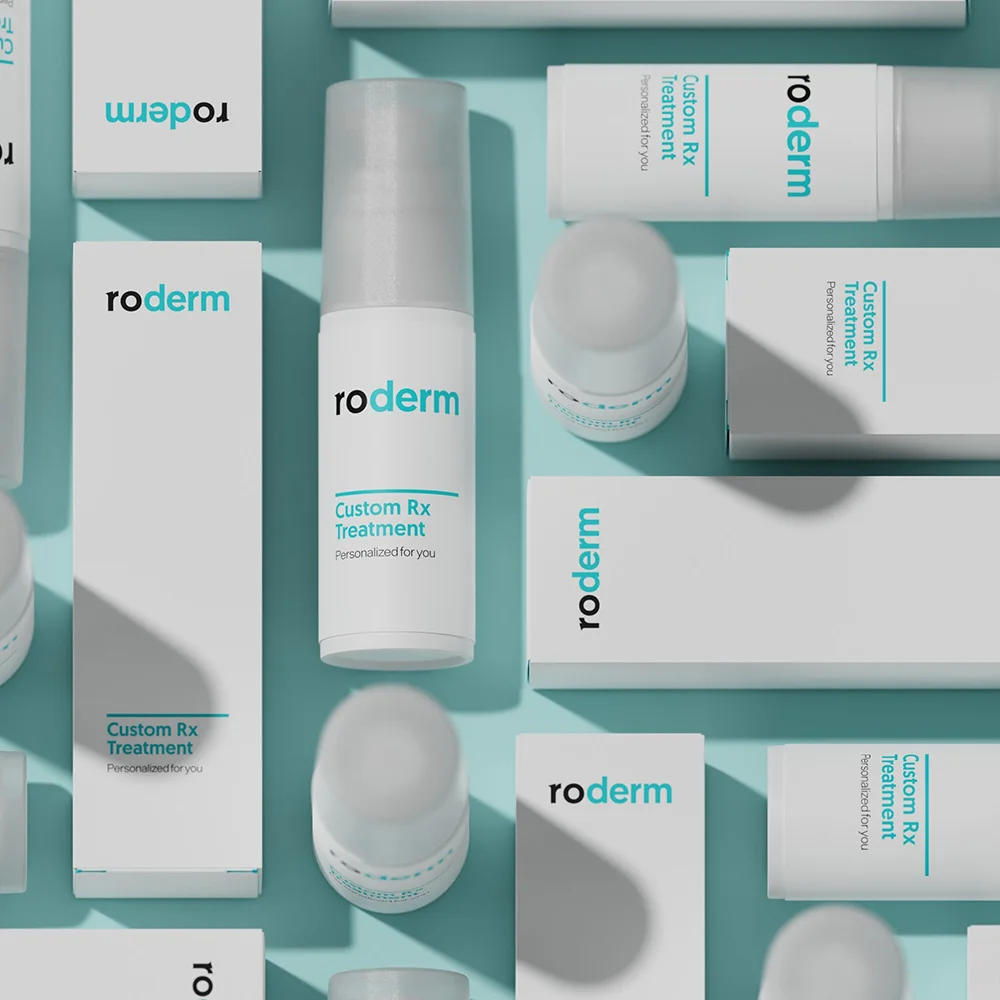Here's what we'll cover
Here's what we'll cover
Here's what we'll cover
If you've ever dealt with acne, chances are you've also dealt with the occasional, well-meaning-but-highly-irritating commentary and advice. Have you tried this specific cleanser? What about this treatment? Why don't you clean up your diet?
That last one brings up a lot of questions. Can your diet have an impact on your acne? Are there really foods that cause acne? What about foods to avoid if you have acne? Let's take a look at what the research says about the relationship between your skin and what you eat.
Diet and acne
The relationship between diet and acne is a bit controversial. However, some research supports the notion that what you eat may influence what happens on your face.
While diet may affect acne breakouts, it does not cause acne. Acne vulgaris results from various contributing factors, including increased oil (or sebum) production, inflammatory factors, skin bacteria, genetics, and more. But research shows that diet may also play a significant role for some people, and knowing the most common acne culprits may help people prone to pimples avoid exacerbating their skin issues.
What foods to avoid with acne
While many of us grew up hearing how greasy junk foods could wreak havoc on our complexions ("oily food equals oily face"), the science shows it isn't so simple. Several foods have the potential to trigger breakouts for a variety of reasons. If you suspect your diet may be contributing to your blemishes, consider taking a closer look at your consumption of these foods.
Milk and dairy products
Several studies over the years have indicated the negative impact of dairy on your skin. Theories include the idea that milk proteins may trigger hormones and growth factors in the body that increase your likelihood of developing acne (Dall'Oglio, 2021).
Studies show that consuming any dairy (full-fat dairy, whole milk, low-fat/skim milk, yogurt), regardless of how much or how often, is associated with a higher chance of developing acne than those who don't eat or drink any dairy products. However, most research indicates associations between dairy and acne, not a direct causal relationship—it's not yet clear whether milk is a definite acne trigger for most people (Juhl, 2018).
High-glycemic foods
The glycemic index (GI) measures how much carbohydrate-rich foods impact blood sugar levels. High-GI foods are typically (but not always) processed or refined forms of carbs, like white bread, white rice, sugary cereals, snack foods, and more.
These high-GI foods cause a spike in your blood sugar and insulin levels (Holesh, 2021). These spikes may, in turn, trigger factors (like insulin-like growth factor 1—IGF-1) and pathways in your body that make acne more likely to develop. On top of that, the rapid rise in blood sugar levels can also lead to inflammation, which can make your acne worse (Dall'Oglio, 2021; Berbudi, 2020).
Chocolate
No one wants to entertain arguments against the consumption of chocolate, but it has been a long-suspected acne trigger. Some studies suggest that people who eat chocolate have a higher likelihood of worsening their acne. But scientists don't know if this is because chocolate, like other sugary foods, has a high glycemic index or if other factors are at play (Dall'Oglio, 2021; Baldwin, 2021).
Dark chocolate also has antioxidants that may help with acne. In short, there is no proven causal relationship between chocolate and acne, and more research is needed in this area.
Fatty foods
It's no surprise that oily, fatty foods are suspected of making acne worse. Research suggests that eating fried food, oily food, fast food, etc., worsens acne. One theory is that saturated fats and trans fatty acids may trigger increased IGF-1 levels and acne development (Baldwin, 2021; Dall'Oglio, 2021).
What to eat to prevent acne
There may not be any single cure-all food that magically improves acne (or a single food that magically improves anything, for that matter). Still, certain ingredients do have some scientific evidence that they could at least help keep skin calm. Antioxidant and anti-inflammatory foods may help prevent or improve acne.
Omega-3 fatty acids
Research indicates that eating foods rich in omega-3 fatty acids may help reduce the risk of developing acne. Omega-3 fatty acids help decrease inflammation and lower IGF-1 levels, which may trigger acne. Examples of food with omega-3s include walnuts, flax seeds, and fatty fish like salmon and sardines. Supplementing with fish oils high in omega-3s may also help clear up your acne (Baldwin, 2021).
Turmeric
Turmeric (and its active ingredient curcumin) has potential antimicrobial and anti-inflammatory properties, making it a possible candidate for improving acne. Small studies suggest that turmeric may help treat acne and other skin conditions (Vaughn, 2016).
Green tea
Polyphenols, the antioxidant molecules found in green tea and other foods like certain nuts and fruits, have antimicrobial and anti-inflammatory properties. Some research suggests that incorporating polyphenol-rich foods like green tea could help reduce oil production and keep acne in check (Saric, 2016).
Probiotics
Recently, scientists have been looking into probiotics to improve acne. They theorize that using probiotics to normalize the skin bacteria levels and the gut microbiome (the good bacteria in your digestive system) may help acne. More research is needed in this area (Baldwin, 2021).
Mediterranean-style diets
It may sound simple, but avoiding refined, processed foods and opting for whole foods like fruits, vegetables, and nuts may help you maintain better skin (and overall) health. Mediterranean-style diets, rich in fish, healthy oils, and whole grains and low in saturated fats and dairy, may be a good model for people with acne to adopt (Dall'Oglio, 2021).
Other causes of acne
Many different factors cause acne, and it can be hard to know which applies to you specifically. Ultimately, acne lesions come from clogged pores resulting in inflammation (and sometimes infection). Certain things may make you more prone to developing acne, including (Thiboutot, 2021):
Hormonal changes, like menstruation, pregnancy, etc.
Genetics
Stress
Skincare habits, like harsh scrubbing while cleansing
Smoking
Clothing or other items rubbing your skin
Medical conditions, like polycystic ovary syndrome (PCOS)
Medications, like corticosteroids
Masks (aka "maskne")
If you have questions, talk to your healthcare provider about the possible causes of your acne and potential treatments.
Whether you think your diet contributes to your acne, or you're just not sure what could be causing breakouts, it's best to consult with a healthcare provider or dermatologist before trying any specific diets or supplements.
DISCLAIMER
If you have any medical questions or concerns, please talk to your healthcare provider. The articles on Health Guide are underpinned by peer-reviewed research and information drawn from medical societies and governmental agencies. However, they are not a substitute for professional medical advice, diagnosis, or treatment.
References
Baldwin, H. & Tan, J. (2021). Effects of diet on acne and its response to treatment. American Journal of Clinical Dermatology , 22 (1), 55–65. doi: 10.1007/s40257-020-00542-y. Retrieved from https://pubmed.ncbi.nlm.nih.gov/33462816/
Berbudi, A., Rahmadika, N., Tjahjadi, A. I., & Ruslami, R. (2020). Type 2 diabetes and its impact on the immune system. Current Diabetes Reviews , 16 (5), 442–449. doi: 10.2174/1573399815666191024085838. Retrieved from https://pubmed.ncbi.nlm.nih.gov/31657690/
Dall'Oglio, F., Nasca, M. R., Fiorentini, F., & Micali, G. (2021). Diet and acne: review of the evidence from 2009 to 2020. International Journal of Dermatology , 60 (6), 672–685. doi: 10.1111/ijd.15390. Retrieved from https://pubmed.ncbi.nlm.nih.gov/33462816/
Holesh, J. E., Aslam, S., & Martin, A. (2021). Physiology, carbohydrates. [Updated 2021 Jul 26]. In: StatPearls [Internet]. Retrieved on Oct 28, 2021 from https://www.ncbi.nlm.nih.gov/books/NBK459280/
Juhl, C. R., Bergholdt, H., Miller, I. M., Jemec, G., Kanters, J. K., & Ellervik, C. (2018). Dairy intake and acne vulgaris: a systematic review and meta-analysis of 78,529 children, adolescents, and young adults. Nutrients , 10 (8), 1049. doi: 10.3390/nu10081049. Retrieved from https://pubmed.ncbi.nlm.nih.gov/30096883/
Saric, S., Notay, M., & Sivamani, R. K. (2016). Green tea and other tea polyphenols: effects on sebum production and acne vulgaris. Antioxidants (Basel, Switzerland), 6 (1), 2. doi: 10.3390/antiox6010002. Retrieved from https://pubmed.ncbi.nlm.nih.gov/28036057/
Thiboutot, D. & Zaenglein, A. (2021). Pathogenesis, clinical manifestations, and diagnosis of acne vulgaris. In UptoDate . Levy, M.L, Owen, C., and Ofori, A.O. (Eds.). Retrieved from https://www.uptodate.com/contents/pathogenesis-clinical-manifestations-and-diagnosis-of-acne-vulgaris










